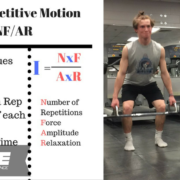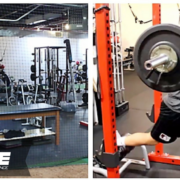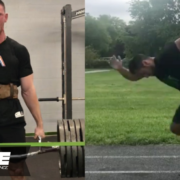The One Aspect of Baseball Training That You Must Master to Succeed
If I were to ask you what the most important part of baseball training is, what is the first thing that comes to mind? Perhaps programming, force production, or sport specificity? Maybe injury prevention, strength, or speed? Even nutrition, movement quality, and recovery could make the cut.
Based on each coach’s individual philosophy, that list could go on forever. While there is no right answer to that question, as long as you can give a reason “why” it is the most important aspect, I would probably agree with you.
All of those listed (as well as countless others) are just pieces of a much larger training puzzle. In my years of competing and coaching, I have come to the conclusion that arguably the most important aspect of training is “consistency.”
Consistently Show Up to Train
An athlete that trains 4x a week is more likely to make gains faster than the one that comes 4x a month. The same can be said from season-to-season. Working in the private sector, we have plenty of turnover from month-to-month.
If a high school athlete plays baseball and football (which we strongly encourage all of our athletes to play multiple sports), their only true “offseason” is from November (end of high school football season) through the beginning of March (start of high school baseball). That gives them only 4 out of 12 months in the year to really focus on training.
Now compare that to the athlete that consistently makes time to train in-season. Those strength gains they made in the offseason will not disappear (they can even continue to increase) as the season progresses.
That strength is necessary to combat the stresses these athletes experience during games and practices to keep them healthy and performing at a high level.
Consistently Attack Their Training, Too
I have witnessed way too many athletes that show up just to go through the motions and do the bare minimum during training.
The athletes that are always taking advantage of their time in the weight room are the ones that seem to build strength, move better and complain less about injuries (if at all).
That means showing up early, get moving and taking their warm-up seriously, competing on every rep, encouraging others around them, asking for help when needed, making sure they are moving correctly, progressively overloading, never skipping sets or reps, staying after to do extra, focusing on mobility work, and so forth.
The Consistency Must Apply to the Coaching as Well
As a coach, we must bring energy every day. I’m not saying that every coach needs to be a “hype man” or “hype woman” like you see with many in the field.
They just need to know their identity as a coach and follow their principles they set forth for themselves while making sure that they are locked in to help every athlete that walks through their door that day.
Their programming should always be working towards certain goals depending on the athlete(s), time of the year, available equipment, etc. They must be learning and looking for new ways to improve on a daily basis.
Lastly, constant communication between a coach and athlete is crucial. They can write up the best program in the world, but none of it will matter if the athlete and coach are not on the same page.
The Athlete Must Stay Consistent with Their Nutrition and Recovery
I have been asked numerous times what supplements I recommend. I love seeing their faces when I say, “real food, water and sleep.”
If you consistently make time to eat a real breakfast, lunch and dinner while sprinkling in 2-3 smaller meals aside from those, you will have a much better chance to gain weight than the athlete that skips breakfast, eats a turkey sandwich and chips for lunch, and then nothing until they go grab Chipotle with their friends after class or practice.
For athletes that need to lose weight, following a similar protocol while just controlling their portions should yield results.
Programs like the 21-Day Fix, 24-Day Challenge and so on are effective for some of the general population because they ask someone that eats junk and sits around all day to consistently exercise and eat normal food every day over 3+ weeks.
The exercises and foods are nothing new; people have been using them for years. Those companies just gave them a plan to change their ways and found a way to hold people accountable.
Athletes Need to Consistently Practice Their Sport
Skill development on a consistent basis is critical. I will admit that throughout high school baseball, I did the bare minimum in terms of hitting and throwing and was fortunate enough to still earn a preferred walk-on spot at a Division-I school.
It was not until I stepped foot on campus that I realized just how far behind I was in terms of development. The “show-and-go” mentality was not enough anymore.
All of those guys that were spending extra time in the cages every day, long tossing, making live reads on balls during batting practice and so forth for the past few years were way ahead of me. Relying on natural ability will only take you so far.
It was not until a year of buying in to my coaches’ system and working my tail off while redshirting that I finally earned my chance to play halfway through that following season.
Consistently putting in extra work each day with the right intent will put you in your best position to succeed in your respective sport.
I recently came across this tweet from Coach Aaron Feld who is now a strength and conditioning coordinator for the University of Oregon (and also happens to have the best mustache in the game):
I feel this pretty much sums up how you handle yourself on a consistent basis. If you are being honest with yourself, is your “average” where you want to be?
If not, what steps are you taking to improve? For a lot of athletes, I’d say be more consistent with your training, eat real food, drink water, improve sleeping habits, practice skill development and just doing the right thing on a daily basis.













Thanks dude good stuff. Matt A
You got it Matt!
I like what you said about consistently showing up to train for baseball. My brother has been telling me about how he wants to be better at baseball. I’ll share this information with him for his benefit.